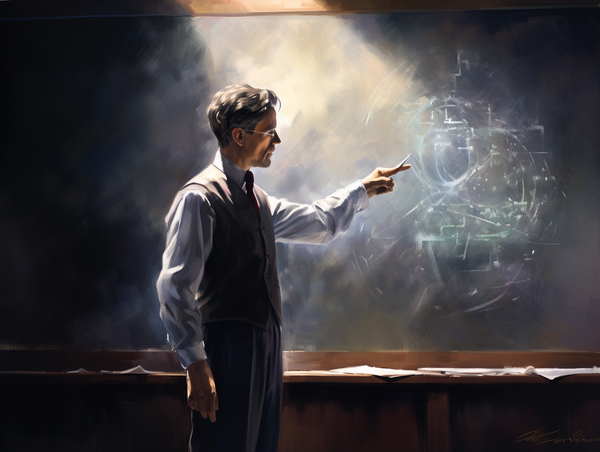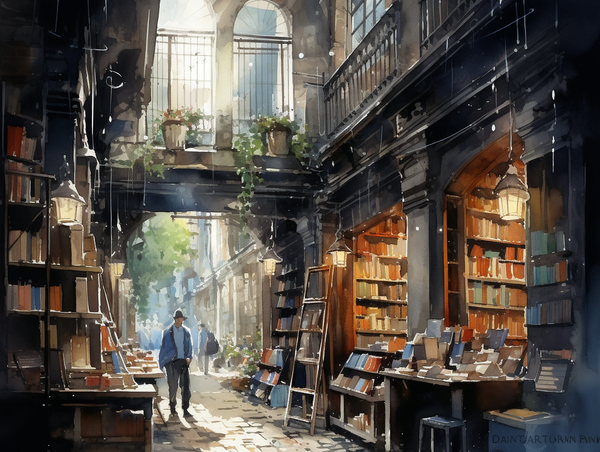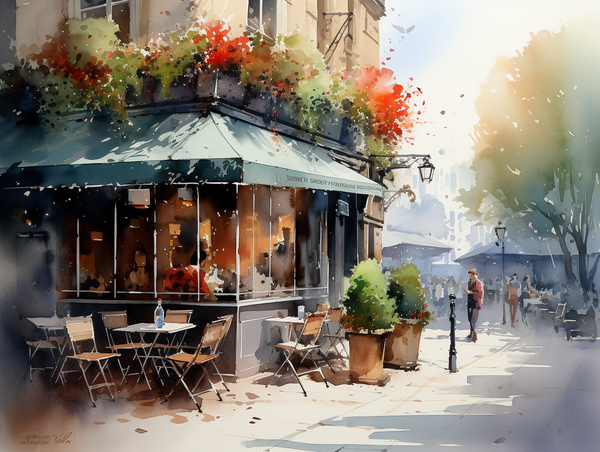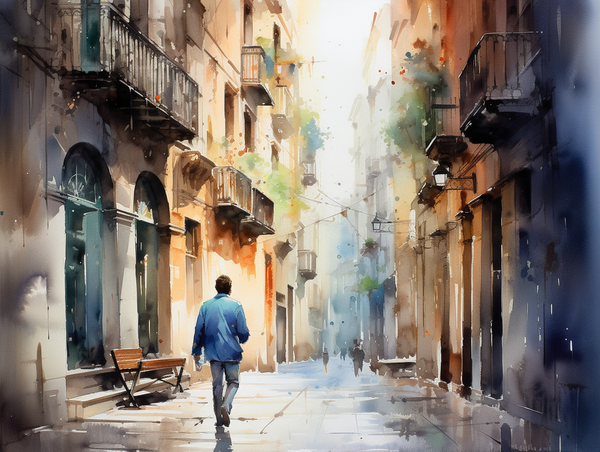Life is a Rorschach test
Reality is like a Rorschach test. The irony of its realism is revealed only through perception.
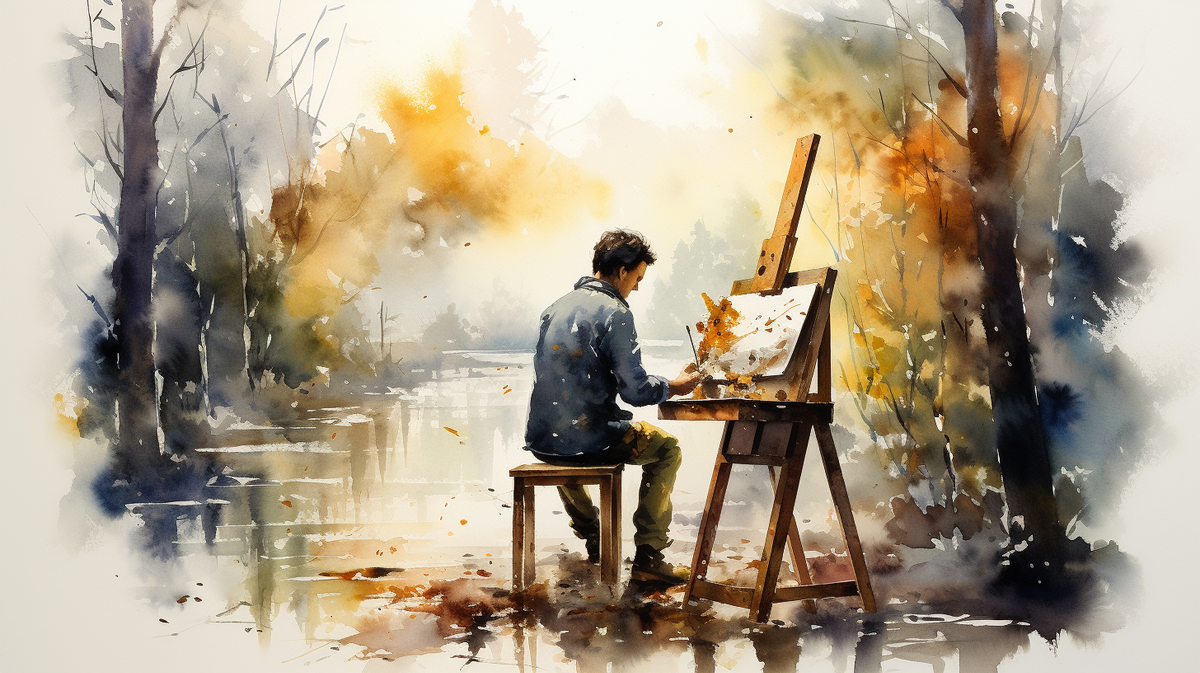
It was a biergarten in Munich. The air was thick with the scent of hops and the sound of clinking steins, the cadence of German conversation rising and falling like waves. An old man, his face etched with lines of his age, raised his mug in a toast to no one in particular, and the crowd around him responded in kind. A scene of joyous celebration.
However raised on the restraint of polite dinner parties and the efficiency of fast-food culture, this scene to me bordered on boisterous chaos. And that is the first truth of life's Rorschach tests: culture is the primary pigment in our perceptual palette tinting every inkblot we encounter.
None of them quite the same.
It’s like a kaleidoscope. The mirrors within, busy reflecting and refracting our experiences, multiplying them, distorting them, revealing facets we might never have noticed. It is our perception, and we are both its viewer and its creator. The coloured shards within - the myriad influences that shape how we see the world.
Take the concept of personal space. In London, the unspoken bubble of privacy extends well beyond the physical. On the tube, commuters contort themselves into pretzels rather than risk brushing against a fellow passenger. The inkblot of proximity is interpreted as intrusion, discomfort, a breach of social contract. But in the sidewalks of Paris, ah, Paris! personal space contracts to the very skin. In crowded cafés, strangers share tables without a second thought, their conversations overlapping like brushstrokes in an impressionist painting. The inkblot is the same, but the cultural diaspora makes it a faux pas in one city ; and an art form in the other.
Likewise in Japan, there is this intricate dance of social hierarchy that often plays out in everyday life. The inkblot here is of respect. Of formality, a system of deference based on age and rank. Stifling, for stereotyping and first opinions. But then you spend time, form relationships and experience the warmth and care underlying these interactions. And slowly, what felt stifling at first makes way for this perception of mutual responsibility and consideration.
The inkblots are the same , but how we project our thoughts and emotions onto them evolve over time since we are not just passive observers but active creators. We interpret and shape the images based on our unique perspectives which evolve with time context and experiences.
Metaphors for the subjective nature of reality,
In my own life, the concept of 'home" has been my ultimate Rorschach test. Home used to be this fixed point, a place of safety and constancy. But as I have traveled, and lived in different countries and cultures, it has become something more fluid. It has shape-shifted from a physical location to a feeling, from a single point to a constellation of experiences and connections.
Each journey, each encounter, has added new facets to my understanding of home. The inkblot has remained the same – the concept of 'home' – but my ability to see different shapes within it has expanded.
They say that in physics, particles exist in multiple states simultaneously until observed. It’s called superposition. This superposition of states, echoes the multiplicity of cultural perspectives which plays very much out in the open. It’s like reality itself is a grand Rorschach test, its true nature revealed only through the act of perception and evolution over time.
What was once a moth in shape very often becomes a butterfly.
We are all faced with the same set of inkblots – the Rorschach tests of everyday existence. But we see in them different shapes, different meanings, influenced by the interplay of our cultural conditioning and personal experiences. No two people ever see exactly the same image, yet all our interpretations are true in their own way since we provide meaning to the ambiguity we face in those dark designs.
And in doing so, we not only interpret life – we create it.
This truth is both liberating and daunting. If our perceptions shape our reality, then we hold a profound responsibility for the world we co-create. By shifting our perceptions and learning to see through the eyes of others, we can unlock new possibilities. Each new perspective we embrace can enrich the kaleidoscope of our collective existence, revealing patterns of beauty, inclusivity, and compassion—patterns that have the power to transform society and redefine the norms that bind us.
However, if we choose to see only through the narrow lens of our own experience—an inward gaze that refuses to acknowledge the wider perspectives of others—we become an ideology that feeds on division and exclusion. The inevitable collapse of this closed ideology is certain but the cost to pay is extremely high for those who live that transition.
In the end, how we choose to perceive the world shapes the world we leave behind.
About Me:
I write 'cos words are fun. More about me here. Follow @hackrlife on X

